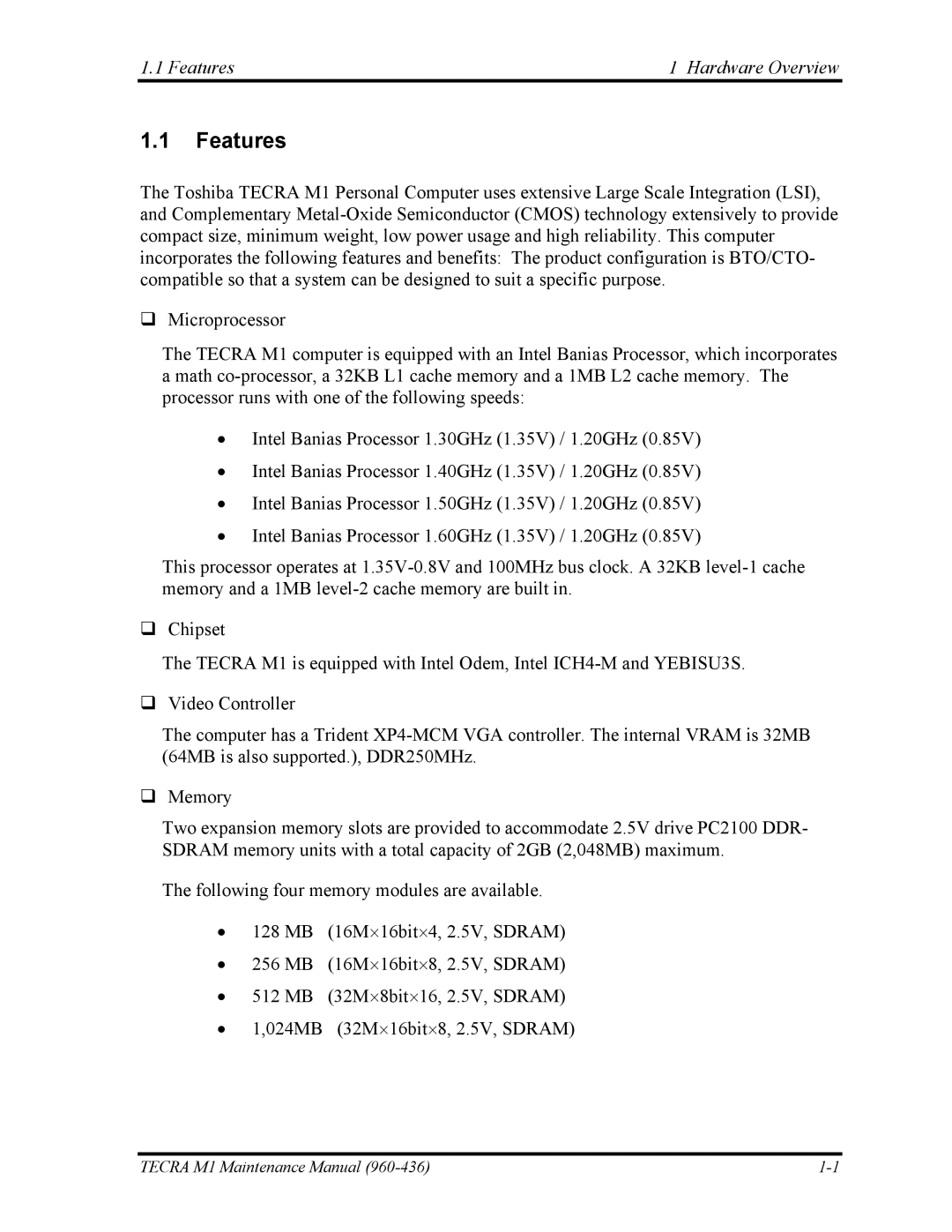1.1 Features | 1 Hardware Overview |
1.1Features
The Toshiba TECRA M1 Personal Computer uses extensive Large Scale Integration (LSI), and Complementary
Microprocessor
The TECRA M1 computer is equipped with an Intel Banias Processor, which incorporates a math
•Intel Banias Processor 1.30GHz (1.35V) / 1.20GHz (0.85V)
•Intel Banias Processor 1.40GHz (1.35V) / 1.20GHz (0.85V)
•Intel Banias Processor 1.50GHz (1.35V) / 1.20GHz (0.85V)
•Intel Banias Processor 1.60GHz (1.35V) / 1.20GHz (0.85V)
This processor operates at
Chipset
The TECRA M1 is equipped with Intel Odem, Intel
Video Controller
The computer has a Trident
Memory
Two expansion memory slots are provided to accommodate 2.5V drive PC2100 DDR- SDRAM memory units with a total capacity of 2GB (2,048MB) maximum.
The following four memory modules are available.
•128 MB (16M⋅16bit⋅4, 2.5V, SDRAM)
•256 MB (16M⋅16bit⋅8, 2.5V, SDRAM)
•512 MB (32M⋅8bit⋅16, 2.5V, SDRAM)
•1,024MB (32M⋅16bit⋅8, 2.5V, SDRAM)
TECRA M1 Maintenance Manual |
